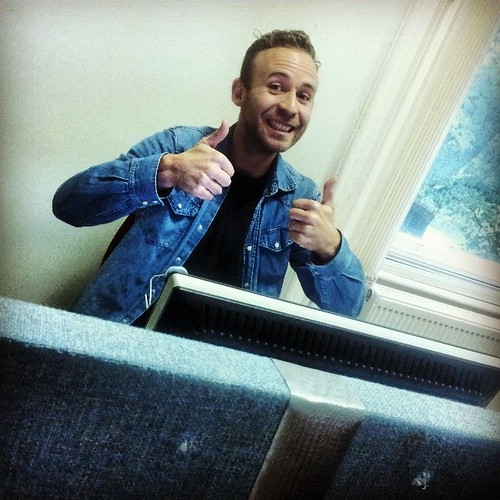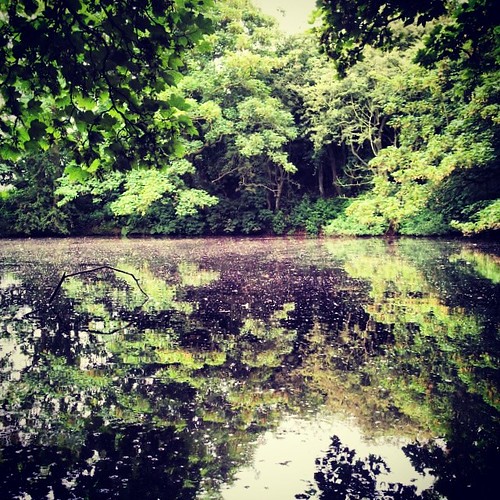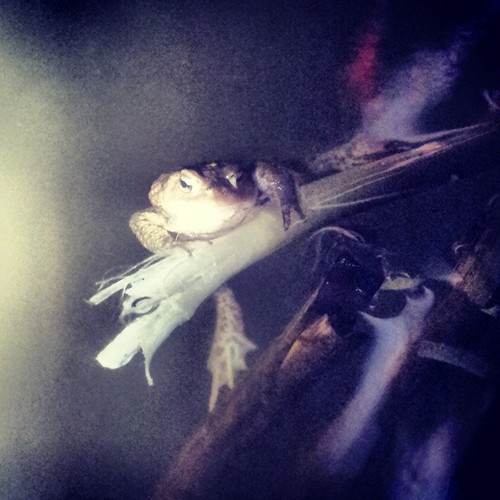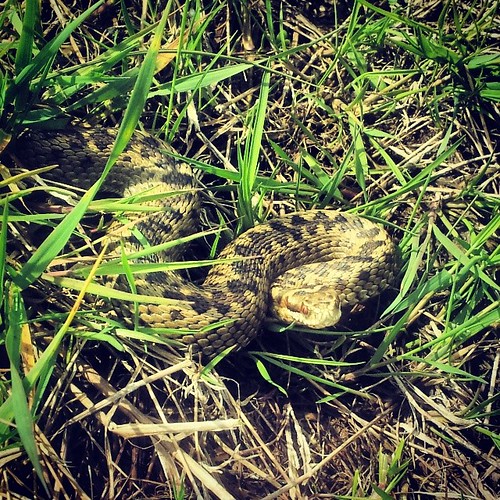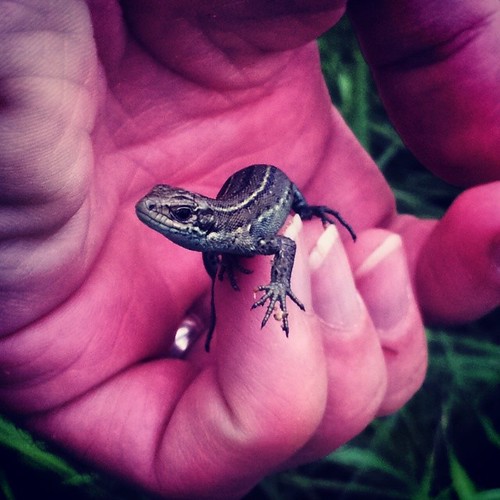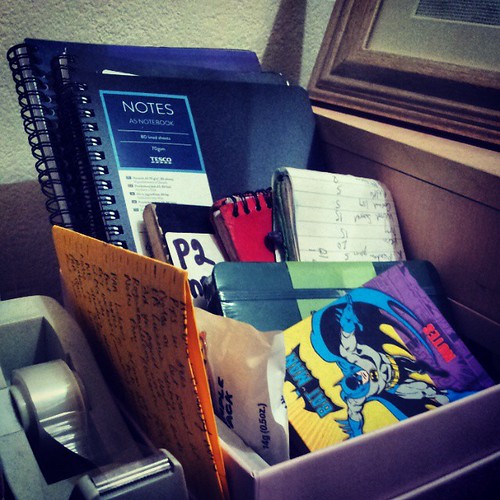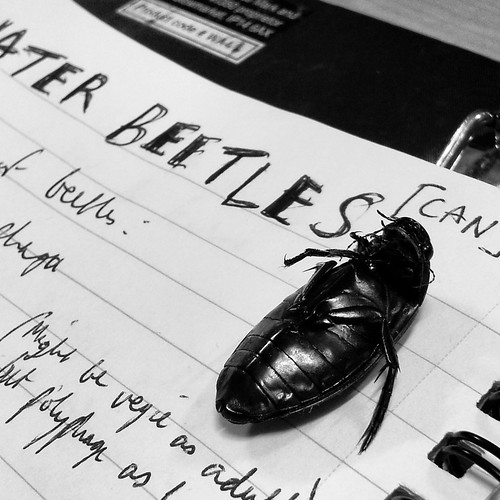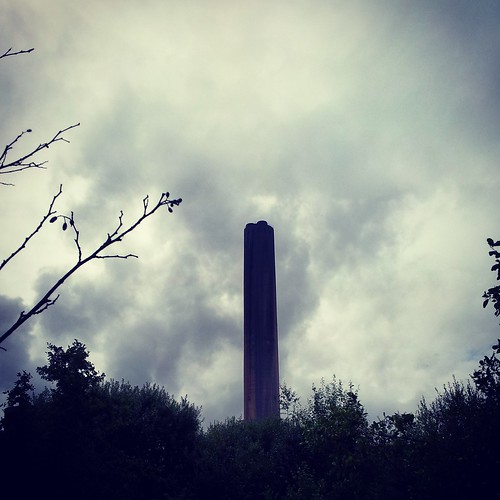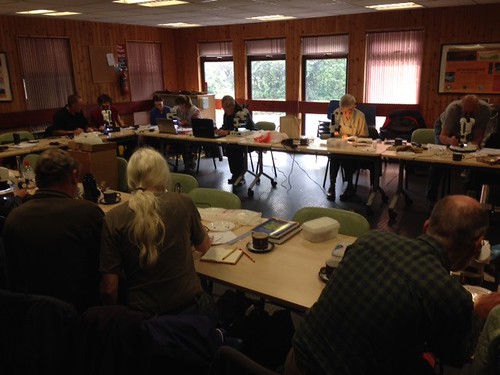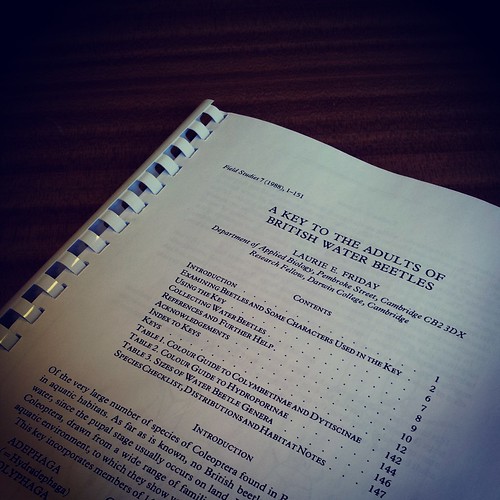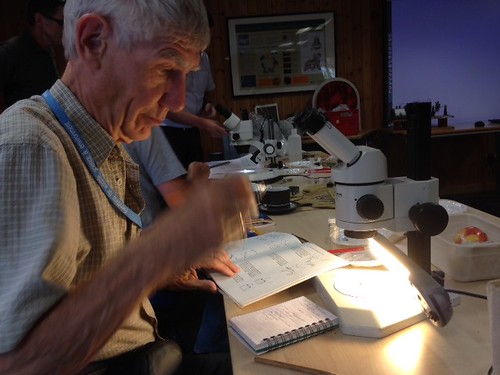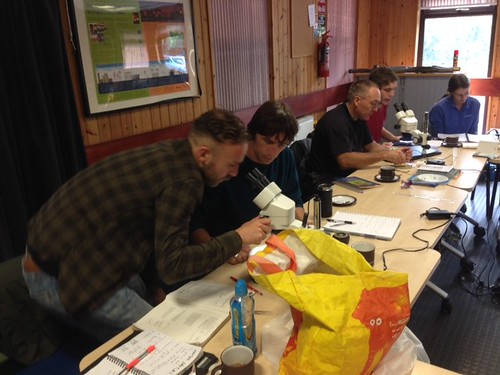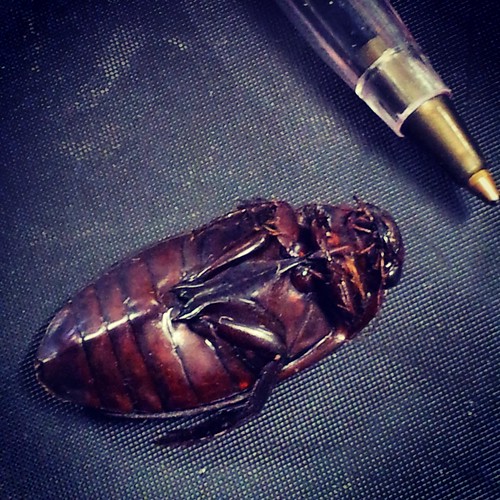This is based on my experiences on a sandwich year placement at an ecological consultancy. A consultancy I am currently working at full time in the 6 month gap between my placement ending and my final year at uni beginning so my approach worked, for me at least…If you’re about to do a similar placement, or are just interested in a career in ecology, or are going to be doing a totally different placement in another field all together this could be a lot of or at least a little help to you.
This blog assumes you have a placement already. For how to get one, click this.
10 top tips:
1) Say yes to everything
If like me you have never worked in the ecology industry before it will come as some what of a culture shock. The hours, the structure of your day, the people, all totally different. You could be forgiven for finding it intimidating at first and your inner-monologue might start trying to talk you out of agreeing to too much stuff. Especially when it’s confusing stuff described in terminology that’s unfamiliar. Turn your inner-monologue off. Or turn it down so you can hardly hear it. Or systematically ignore it and do the opposite every time you hear it.
Some of the most fun, interesting, valuable and/or rewarding experiences I’ve had have been on jobs that given a few minutes to think of an excuse the voice in my head would have loved to have wriggled out of.
2) Say what you’re thinking
What no one tells you about ecological consultancy work before your first day is that one of the most important skills you need to succeed is the ability to sit in a car with someone for four hours and it not be awkward. Not just car journeys in fact but countless dinners in pubs, service stations, hotels etc. In my old job you could sometimes go all day without speaking to the people sat next to you. You went in at 9am, got your head down and got out at 5pm. Ecology is not like that. You can spend more time in week engaging with the people you work with than the people you live with.
The first time I met my supervisor Sarah was for a brief chat on the stairs where she told me we’d be working together later that week. Later that week I met her for the second time. We drove 4hrs to Cumbria, spent the day doing a Phase 1 survey of some agricultural land, had dinner then went out and did a dusk bat survey followed by a dawn survey. We did some more Phase 1ing then drove back to Buxton. In the 30 hours from us leaving the office to us returning to it we were driving, working or eating together for around 23 hours.
My point here is that I learned quickly that my usual social survival technique of quiet and polite was not appropriate for this environment. It would have been really uncomfortable if I’d sat smiling in silence for the majority of the job. Eventually she probably would have given up trying and I’d have become a somewhat eerie figure lurking silently in the background, smiling politely.
For a long time I’ve lived by the rule that if you wonder whether it’s a good idea to say something, it probably isn’t and you should keep your mouth shut. Well I threw caution to the wind last July and have been merrily blurting out whatever comes into my head and damning the consequences ever since! Every attempt at humour, every movie reference, every “ever notice how…?” and every potentially stupid question, I’ve said them all and it’s been fine. Truth is people would rather listen to just about anything other than an uncomfortable silence and the things that pop into your head are who you are. They might like you for them.
I feel this should come with a small disclaimer however. Try it for a day and see how it works out. If those around you are visibly offended perhaps have a rethink.
3) Ask
A placement is an excellent place to learn. You might never again have a job where you can so openly and cheerfully not know things. So never miss the chance to ask questions. The first time you work with people find out what they specialize in, what they do for fun, what they did at uni, and remember it.
In my ongoing mission to become a passable botanist some of the most significant progress has been made out on jobs pointing at things I don’t recognize and asking what they are. Sometimes those jobs have been habitat surveys, other times they’ve been bat, newt or badger surveys but I happened to know one of the people I was working with was a skilled botanist. In my first week I was on a water vole survey with Helen and Anne. Anne is an excellent botanist and by the time we’d walked from the car to the ravine I knew what Woody Nightshade looked like, and tufted vetch, and how to tell the difference between Phragmites and Phalaris.
I also remember learning that day how badass ecologists are. When we arrived at the ravine I took one look at it and assumed that we wouldn’t be going in. It was covered in brambles, full of silt and swarming with horseflies. The sun was baking down, it looked like hell in there, probably full of shopping trolleys, disguarded weapons and dead bodies I thought. I turned around and Anne and Helen were already climbing in.
4) Know your place and embrace it
An important thing to get your head around from the start is where you fit into the company. If you’ve spent the last couple of years studying and anticipating a placement, then trying to and successfully getting a placement, then the placement will feel like a pretty big deal to you. It’s less of a big deal to the people you’ll be working with. The fact that a new placement student is due to start, or has just started at the company will be one piece of information among many they have received that week and if you start as I did in July then they’ll already be in the middle of survey season and really busy.
My approach was to embrace my position as lowest rank and set about making myself indispensable in any way I could. During survey season I did this by saying yes to every offer of work going. Bat survey? Yes please. Water sample collection? Righty-ho. Data entry? No problem. I figured what I lacked in experience I could compensate for in other ways. Personally I wanted to contribute as much as I could. I anticipated getting a lot out of my placement year but I think it’s important that you don’t see it purely as resource to be plundered. Ecology is a small world, you’re making friends and contacts as well as gaining skills.
In the winter months when there was less work I approached Josanne and Heather, two of the secretarial staff and asked them to teach me how to archive old files. There is always archiving to be done. I photocopied and scanned, I changed light-bulbs, swept up the leaves from the car park…no job to big or small for the work placement guy I told people (literally, in an email with this picture attached).
My thinking was that I didn’t want to be idle. The sight of me sat twiddling my thumbs was not the image I wished to project to my colleagues. It’s the kind of thing that makes people feel uncomfortable or worse feel sorry for you. By keeping busy and throwing myself into every job, big or small with the same level of enthusiasm I had a better time and became more accepted as one of the team. When survey season came around again this paid off with more work and more responsibility coming my way. I even got to be lead ecologist on a couple of projects after appropriate training. So mucking in doesn’t get you labelled as car park sweeper, more as a hard working team player, and that’s how you get the good jobs. As it happens sweeping the leaves up in car park was alright. A crisp November morning, headphones in, broom out. Those leaves didn’t stand a chance.
5) Stay positive
I invented a game this year. It’s called ‘Stay Positive for the Whole of Newt Season’. No one enjoys newt work more than me, but even my apparently limitless enthusiasm can be tested by a combination of bramble-rage, mosquito attack, barbed wire snaggery and pond fatigue. Happy to say I am the current reigning champion of Stay Positive for the Whole of Newt Season.
Consultancy work is great but it is tough too. It’s physically and psychologically challenging, especially if you’re used to a 9 to 5 office job like me, or you’re new to the world of full time work.
The hours are really weird. Sometimes you are up late, then in bed for just a few hours in a hotel somewhere before getting up at some peculiar hour to go and do a bat survey in the dark. The next day you feel jet lagged and bumbley.
Other times you’re wearing waders, trying to move around in a pond that smells weird and has mud on the bottom so you keep nearly falling in. Sometimes you do fall in and the weird smelling water goes in your waders and you realise you didn’t bring a spare pair of socks and have hours to go yet. Then later someone walks in on you in the pub toilet trying to dry the trousers you’re wearing with a wall mounted hand dryer…
Stay positive. This is still 100 times better than working in a call centre. Trust me, I’ve worked in a few. I’ll take a horse fly in the ear and pond water in my pants over another minute in sales or customer services any day!
A bat survey can be just a tree and no sleep if you let it, but it doesn’t have to be. Enjoy the absurdity of some of the situations you find yourself in: Moody derelict buildings; isolated meadows and ponds; wind farms; former industrial sites turned over grown brown field sites; empty city streets at dawn…
…Relish in the fact that you have a tan and your friends don’t because you’ve been outside for every nice day of the year so far. Notice the wildlife extras you get, like the hedgehog that bumbles past you on a bat survey, or the fox cub that poos on Kelly’s weather writer. Or the buzzard that dive bombs you when you get too close to her nest, and the countless toads that turn up apparently just amuse you.
Also, no one likes a misery guts. Sugar helps. Skittles are my personal choice of emergency survey pick-me-up.
6) Have an ecology bucket list
If you want to see an otter, tell people. If you want to see every species of Speedwell in the UK, tell them that too. Whatever your thing is, talk about it. It might not happen straight away but if people know you really want to do a thing then if it comes up they might just think of you. For me it was reptiles. I hadn’t seen any British reptiles a year ago. So I put it top of my list of things to do and set about emailing various people trying to see if I could get a look at an adder on their nature reserve, with no joy for ages…
But thanks to a couple of excellent reptile survey jobs I managed to be part of I’ve now not only seen adders but caught one and translocated it, an amazing experience. Not just adders either but dozens of common lizards. Grass snakes are next on the list. No luck yet but everyone knows I want to get pooed on by a grass snake so it’s only a matter of time.
7) Make notes
Sounds obvious but have a note pad on you all the time. You’ll be surrounded by people who’re really good at IDing things. When they do, ask them how they did it and when they tell you write it down. Keep your note pads and keep another note of what’s in what pad. This is a good way of wringing every bit of value out of the placement. If your experience is like mine you may be pretty skint for some of the time but if you’re gaining experience and knowledge that gets you a job one day that has a value of its own and not taking advantage of it is a waste.
Also, keep a note of all the jobs you assist on, and keep a log of all the bat experience you gain. This will be useful for future job/licence applications.
8) Make contacts
If you don’t have a LinkedIn profile, set one up and add your new work colleagues to it. Do the same for any other professionals you meet while you’re on your placement. Same goes for Twitter but remember if you’re using it for anything other than ecology stuff your colleagues will see what you tweet! This way after you finish your placement and lose your work email address you wont lose touch with the people you’ve spent a year working with.
9) Repetition is good
Don’t be in a rush to try everything. Variety is good but one of the most valuable things you can gain from a sandwich year is repetition. It’s what makes you good at a thing and what means that when you put it on your CV and get asked about it in an interview one day you will talk confidently about and be able to demonstrate. Click here for more on this.
10) Work towards a licence & write reports
OK this is technically two tips in one but it keeps the list at 10 and I’m funny like that…
A class bat and/or newt licence will make you more employable. Graduating with one or both of those will put you ahead of many other graduates and a year at a consultancy is the perfect place to do it.
If you’re reading this before you start your placement, it’d be a good idea if you haven’t already to join your local bat group and local ARG (Amphibian & Reptile) group. Experience with them will give you a good foundation to build on during your sandwich year. If you don’t have time to do that before your placement starts then start while you’re on the placement with the aim to continuing to work on it after you leave.
Tell your employers and colleagues that you’re interested in working towards your licenses. This will mean they know to train you up while you’re on the job.
Something I only discovered recently as I happen to know some people who have had interviews at consultancies, is that at such interviews they may ask to see an example of a report you have contributed to. One person described it to me as being “the difference between an ecologist and a consultant”. I had thought we were all just consultant ecologists but now I think about it it makes sense. Being good at field work is really important, perhaps the most important thing, but if you can write a report too, there’s a reason for them to employ you between the surveys.
So knowing that I have recently produced my first ecological report on a project I worked on with Kelly. I emailed my first draft over to her and she returned it with a road map of tracked changes on and told me not to freak out at how much she had changed. Far from freaking out I congratulated myself on figuring out I needed to learn to do this while I still had access to people who would teach me for free!
– – – – –
Inevitably every placement will be different. Even future placements at the company I worked at will probably be nothing like mine. Personally I have found it very rewarding. I’ve gained not only skills and experience with which to compete with other professionals when I graduate but perspective too over the industry I’m attempting to break in to. I know what’s good about it and I know what’s tough about it and I still want to do it.
Placements might not pay very well or at all, but the above tips have helped me capitalize on every opportunity and benefit from every bit of value I can. I hope you have found this useful and wish you the best of luck with yours.

